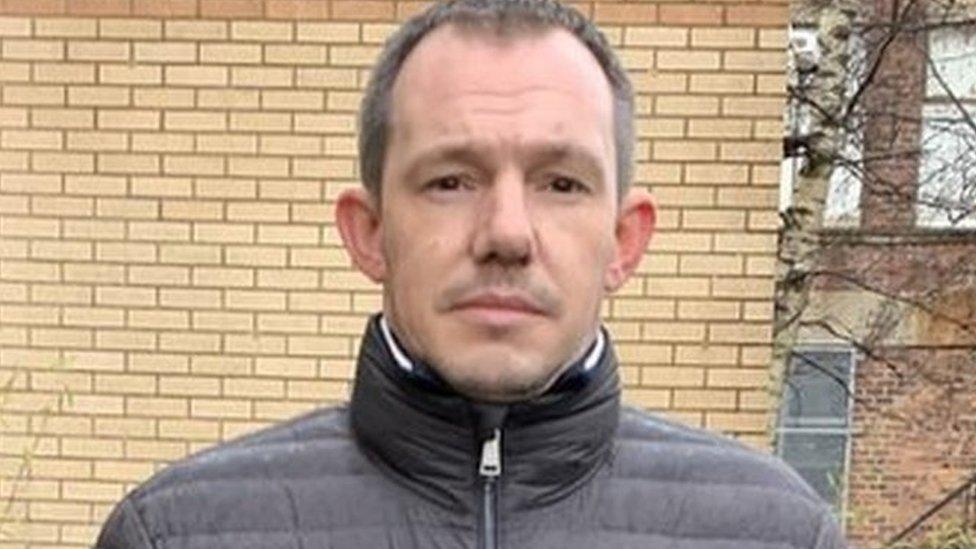Nicola Sturgeon says Scottish drug deaths record 'indefensible'
- Published
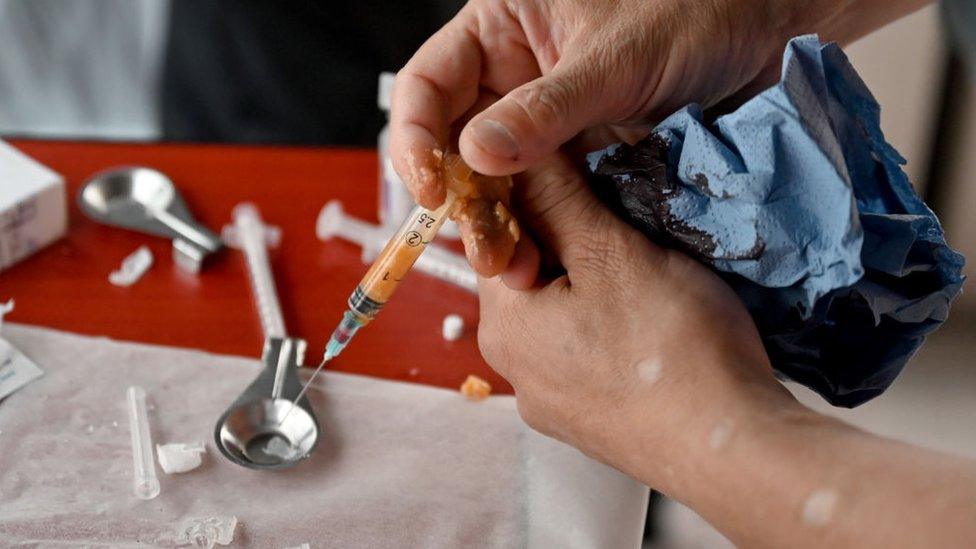
Scotland's drug death rate is three and a half times higher than England and Wales
Scotland's record on drug deaths is "indefensible" and the government must do more to save lives, the country's first minister has admitted.
The number of deaths rose to a record 1,264 in 2019 - double the number in 2014 and the worst rate in Europe.
The first minister said she was "sorry for every family that has suffered grief", saying they had been let down.
And she said she would chair a meeting of the drugs taskforce in January over what "immediate steps" could be taken.
Opposition parties said the government had cut rehabilitation services "to the bone" and repeated their calls for Public Health Minister Joe FitzPatrick to be sacked.
Ms Sturgeon said she wanted to work with Mr FitzPatrick "to make sure we collectively accept this responsibility and take the actions required to fix the problem".
The number of drug-related deaths in Scotland has set a new record six years in a row, and now stands far in advance of the figures recorded in any European country per head of population - and is three and a half times worse than in England and Wales.
Ms Sturgeon said the figures were "completely unacceptable" and "indefensible", and said her government had "much to do to sort this out".
She apologised to families who had been "let down", adding: "This is difficult and complex, but that is not an excuse - these figures tell us that we need to do more and do it quickly".
She said she would chair a meeting of the drug deaths taskforce in January, and would report back to MSPs later that month to set out what "immediate steps" could be taken.

Nicola Sturgeon said she was not going to try to "defend the indefensible"
The first minister was pressed by opposition leaders about the availability of rehab beds and the amount of money the government commits to drug and alcohol partnerships.
Scottish Conservative group leader Ruth Davidson said rehabilitation was "not a panacea", but that "it can work and does save lives".
She said services had been "cut to the bone" by the Scottish government, saying more funding must be committed to avoid a repeat of the "horrendous" figures in future.
There are currently 365 rehab beds available in facilities across Scotland, but Ms Sturgeon confirmed that about 100 were being taken up by patients from other countries.
She said the government was "not satisfied" that the number of rehab beds available was "necessarily sufficient or that they are being used sufficiently".
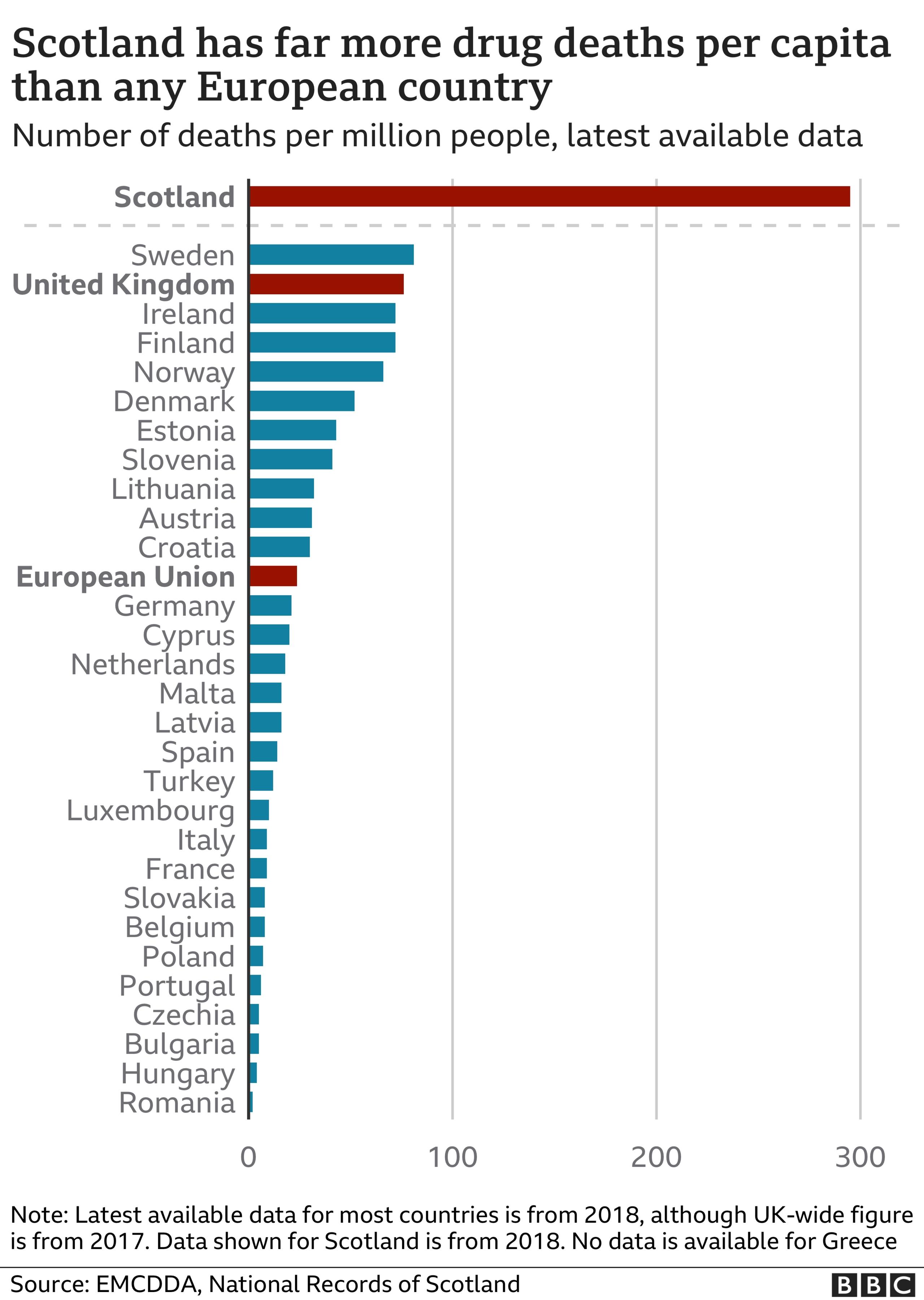
And she said funding for drug and alcohol partnerships had gone up in all but two of the 13 years the SNP has been in power.
She said: "This should not be comfortable. I am not going to stand here and defend the indefensible, these lives matter too much.
"We owe it to the lives which can still be saved that people like me do not engage in the usual political defensiveness, but redouble our efforts."
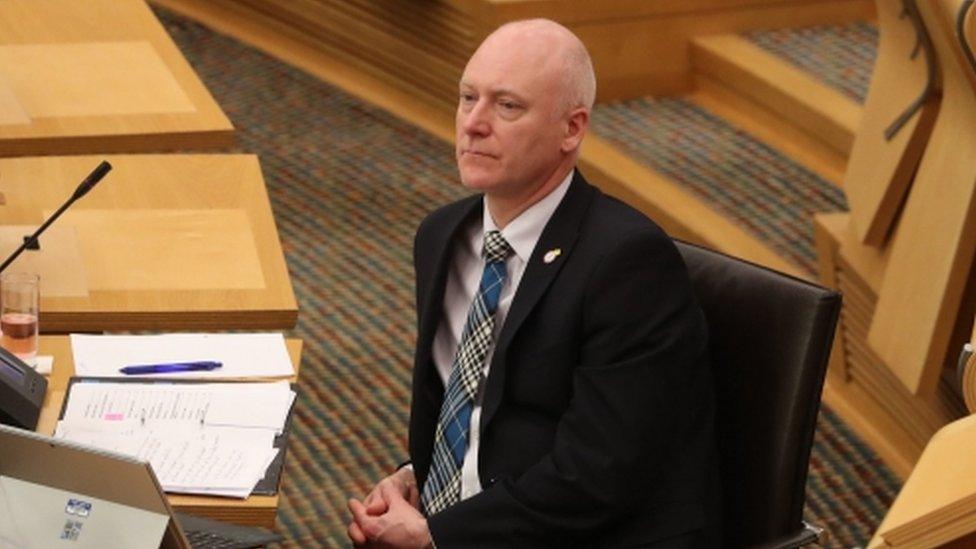
Ms Sturgeon has pledged to work with Mr FitzPatrick to solve the problem despite opposition calls for him to be replaced
Scottish Labour leader Richard Leonard reiterated calls for Ms Sturgeon to "fire her minister for public health" over the figures, saying Mr FitzPatrick's response had been "woeful".
This was echoed by Lib Dem leader Willie Rennie, who said "real leadership" was needed that that Mr FitzPatrick was not capable of "driving change".
Mr FitzPatrick told BBC Scotland on Tuesday that the high number of deaths "stem from a long-standing and complex set of challenges" and that there "really is no shortcut to suddenly solve this".
He also said one of the biggest challenges was the large number of people in the 35-54 age group who have been taking opioid drugs for many years, but who were not engaging with services to help them.
And Mr FitzPatrick, who has been in the role since 2018, pledged to "keep doing the job I am doing".
The UK government, which has power over drug laws, has refused repeated requests from the Scottish government to allow so-called safe consumption rooms to be set up.
It has described consumption rooms as a "distraction" from efforts to tackle the problem, and says it is not convinced that they work.
Critics also argue that the Scottish government could do more with the powers over health and justice that it does have, and point out that England's drug death rate is far lower despite the country also not having consumption rooms.
Related topics
- Published15 December 2020
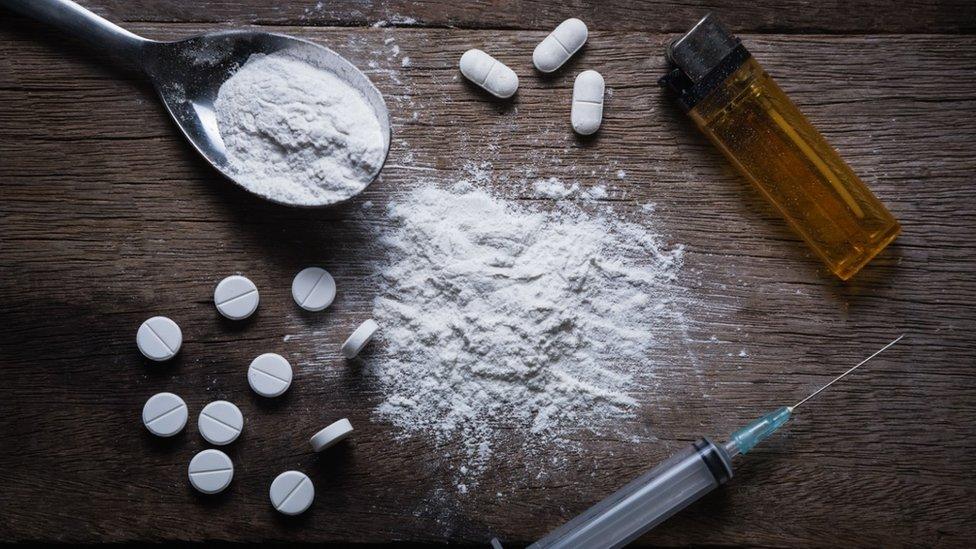
- Published15 December 2020
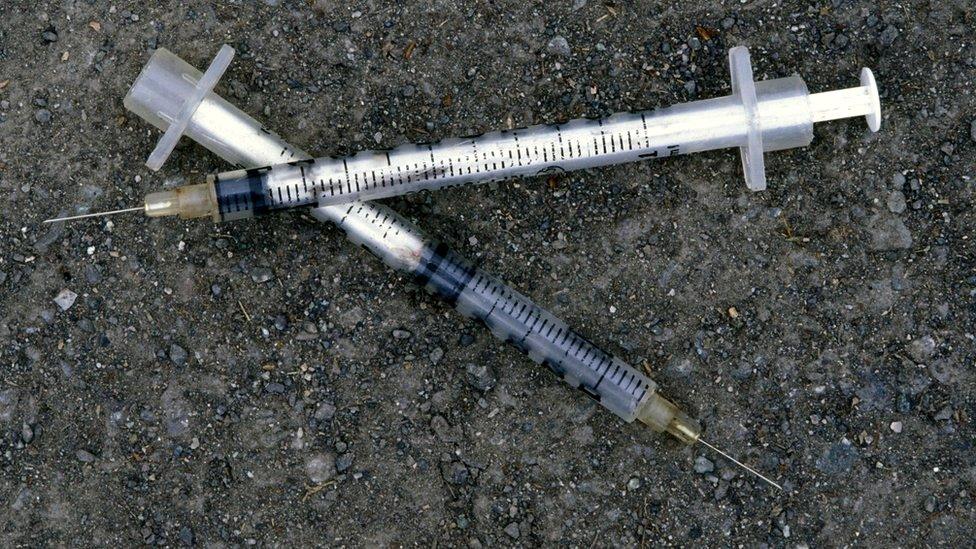
- Published16 December 2020
